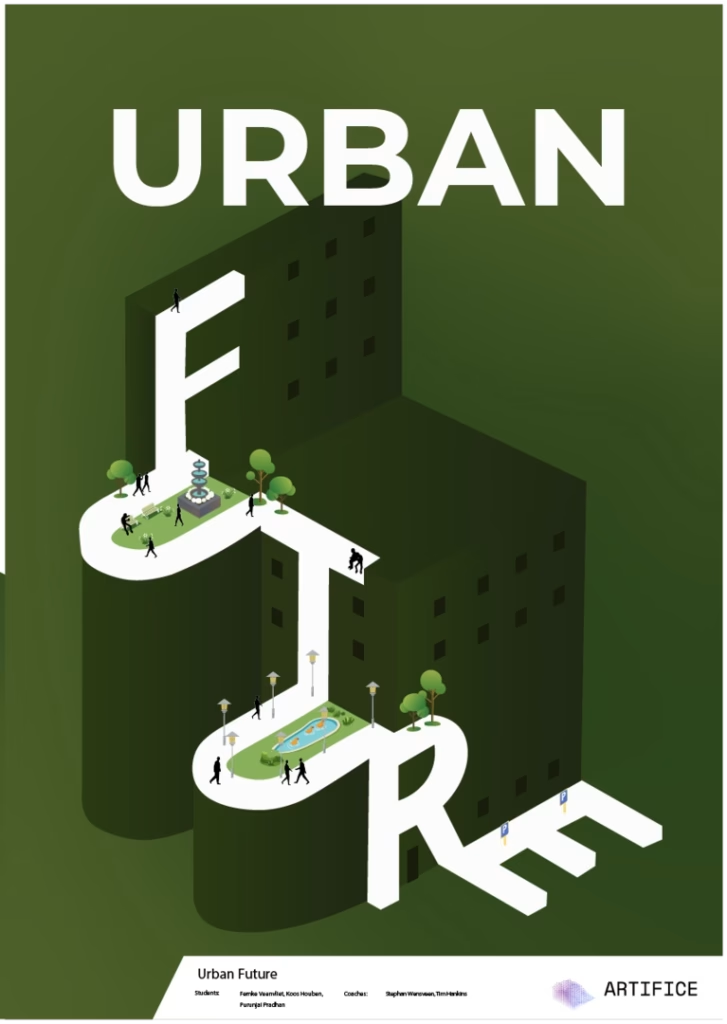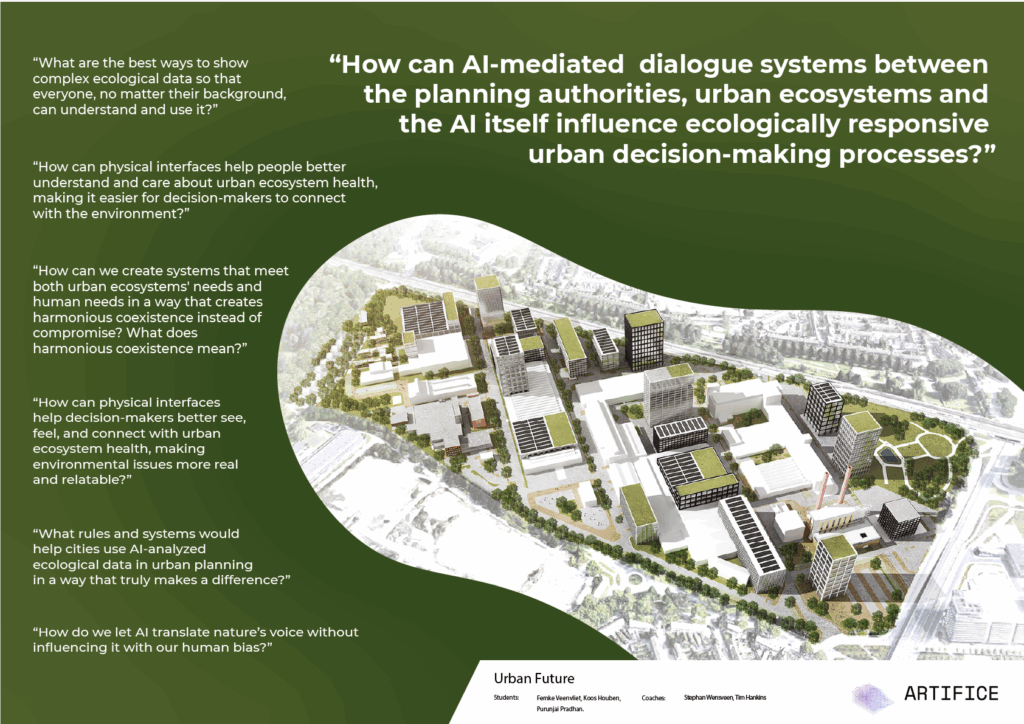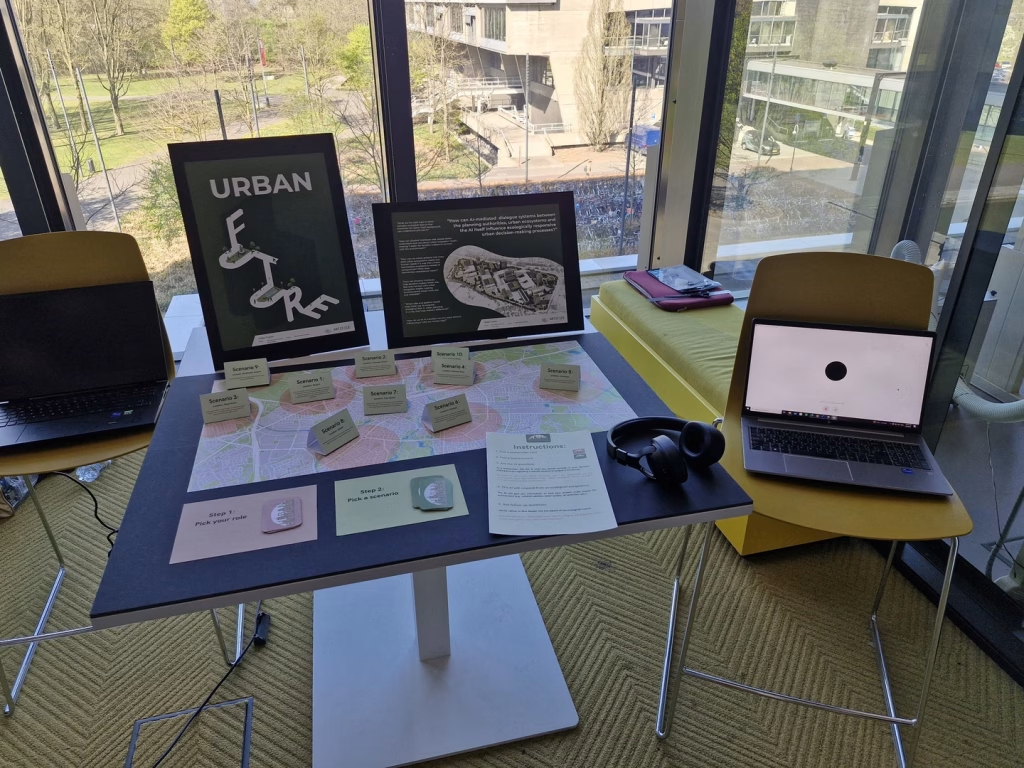Semester:
B2.2 (Q3 & Q4) Ongoing
Expertise areas:
User & Society, Technology & Realization, Creativity & Aesthetics
Main insights:
Apply the design research process, use of Artificial Intelligence
Reflection
Within “CBL project 3”, together with 2 other students, I am doing research exploring how artificial intelligence (AI) can influence ecological responsibility in urban planning by acting as a mediator between urban authorities and ecosystems. The project responds to growing environmental crises and urban planning processes being too human-centered. A critical direction is to develop AI-mediated dialogue systems that translate ecological indicators into actionable insights for planners. The study follows a Transformative Reflective Design Process, combining literature review, speculative design, prototyping, and expert interviews.
Key insights include a deeper understanding of the limitations of current AI in planning (e.g., anthropocentrism, black-box models), and the ethical implications of representing non-human entities through data. The research raised important questions about how AI, transparency, and more-than-human values can be integrated in design. Feedback emphasized the need to refine AI’s role as a mediator rather than a decision-maker, and to narrow the research focus to specific urban-ecological scenarios. Interdisciplinary input from planners, ecologists, and design theorists expanded the scope of inquiry. Early prototypes tested dialogue formats and user engagement. Moving forward, the focus will be on refining these prototypes, designing inclusive interfaces, and evaluating AI’s effectiveness in representing ecological concerns in urban planning.





